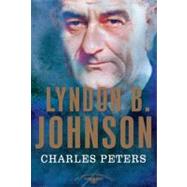The towering figure who sought to transform America into a "Great Society" but whose ambitions and presidency collapsed in the tragedy of the Vietnam War
Few figures in American history are as compelling and complex as Lyndon Baines Johnson, who established himself as the master of the U.S. Senate in the 1950s and succeeded John F. Kennedy in the White House after Kennedy's assassination on November 22, 1963.
Charles Peters, a keen observer of Washington politics for more than five decades, tells the story of Johnson's presidency as the tale of an immensely talented politician driven by ambition and desire. As part of the Kennedy-Johnson administration from 1961 to 1968, Peters knew key players, including Johnson's aides, giving him inside knowledge of the legislative wizardry that led to historic triumphs like the Voting Rights Act and the personal insecurities that led to the tragedy of Vietnam.
Peters's experiences have given him unique insight into the poisonous rivalry between Johnson and Robert F. Kennedy, showing how their misunderstanding of each other exacerbated Johnson's self-doubt and led him into the morass of Vietnam, which crippled his presidency and finally drove this larger-than-life man from the office that was his lifelong ambition.
"A trim, astute portrait… Peters shrewdly assesses Johnson’s legislative tactics and political manipulations, his idealism and staggering energies, his crudeness and cruelties."-The Atlantic
"The latest in the well-received American Presidents Series . . . Peters offers a nuanced portrait of Johnson’s shocking ascension to the presidency in the wake of JFK’s assassination—and explains how both LBJ aides and Kennedy aides became more spiteful and suspicious of one another." -The Christian Science Monitor
"This slim volume . . . will remind members of that generation what a fascinating figure Johnson was in his day and the extent to which his policies helped shape today's United States."-Dallas Morning News








